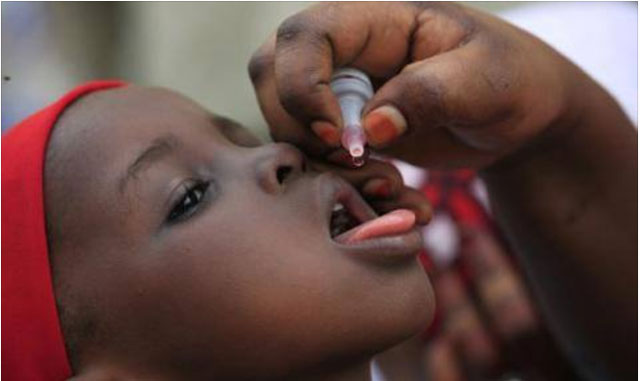
Kampala, Uganda | THE INDEPENDENT | Concerned by the increasing numbers of refugees entering the country, Uganda’s Ministry of Health will September 9-11 roll out a House to House Polio Immunization campaign for children 0-5 years in 73 districts.
“Currently, there is high cross-border movements of populations due to insecurity and cross border trade in countries neighbouring Uganda, which pose a risk of transmitting the wild polio virus in our country,” the ministry of health said in a statement on Tuesday.
In an effort to “Keep Uganda Free of Polio” the Ministry of Health with the support from UNICEF, WHO and in collaboration with other stakeholders plans to conduct the new House to House Polio Immunization campaign September 9th to 11th September 2017.
There was a similar campaign last year for districts of Uganda deemed to be at risk of polio importation, with health workers being able to reach 98% of their targets.
The Ministry of health stated that a continuation of the House to House campaign is important to ensure the disease is kept at bay.
“The border districts still face challenges of refugees, nomadic populations and the busy crossing points, coupled with that, a joint WHO and UNICEF estimates indicated that the coverage of 3 doses of OPV through routine immunization is Uganda in 2014 was 82% which means that some children are left unprotected,” the statement said.
More than one million South Sudan refugees in Uganda https://t.co/zUya1ZfUWm pic.twitter.com/OLnp4BavB4
— The Independent (@UGIndependent) August 17, 2017
“The success of this exercise is at a great extent dependent on social mobilization which helps to raise awareness and create demand for services,” said Professor Anthony Mbonye, the acting Director General of Health Services, ahead of a media briefing Wednesday.

The House to House campaign will include added messages urging parents to immunise against many diseases including HPV, TB and measles. (see media briefing and The Immunisation Act 2017 on page 2)
Polio, or poliomyelitis, is a crippling and potentially deadly infectious disease. It is caused by the poliovirus. The virus spreads from person to person and can invade an infected person’s brain and spinal cord, causing paralysis (can’t move parts of the body).
“Ending polio and fighting the spread of antimicrobial resistance demands the same urgency as a response to a sudden outbreak,” said Dr. Tedros Adhanom Ghebreyesus, Director General, World Health Organization recently.
 The Independent Uganda: You get the Truth we Pay the Price
The Independent Uganda: You get the Truth we Pay the Price



 Anthony Natif notes from Court: Prosecution case enters final stretch
Anthony Natif notes from Court: Prosecution case enters final stretch
